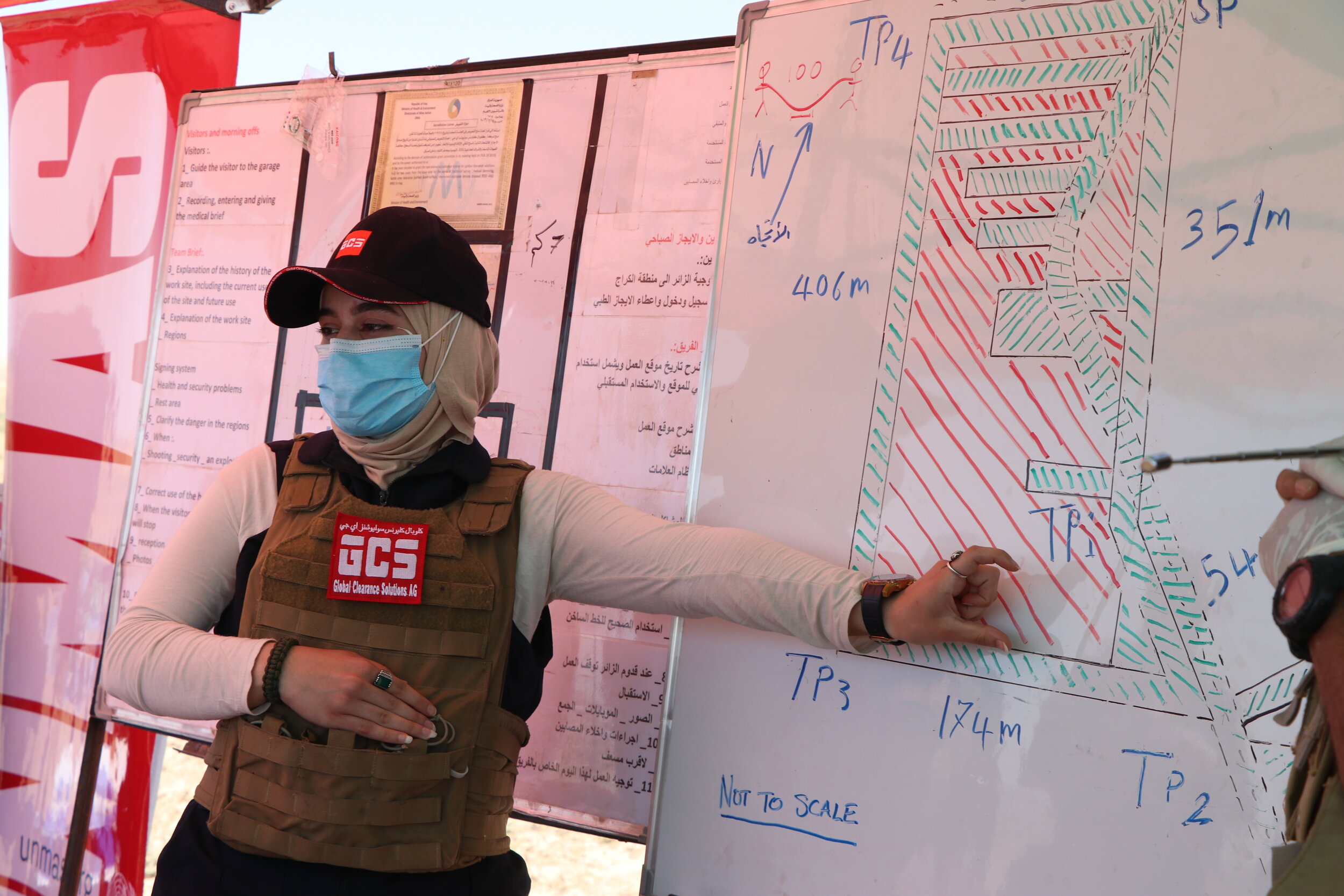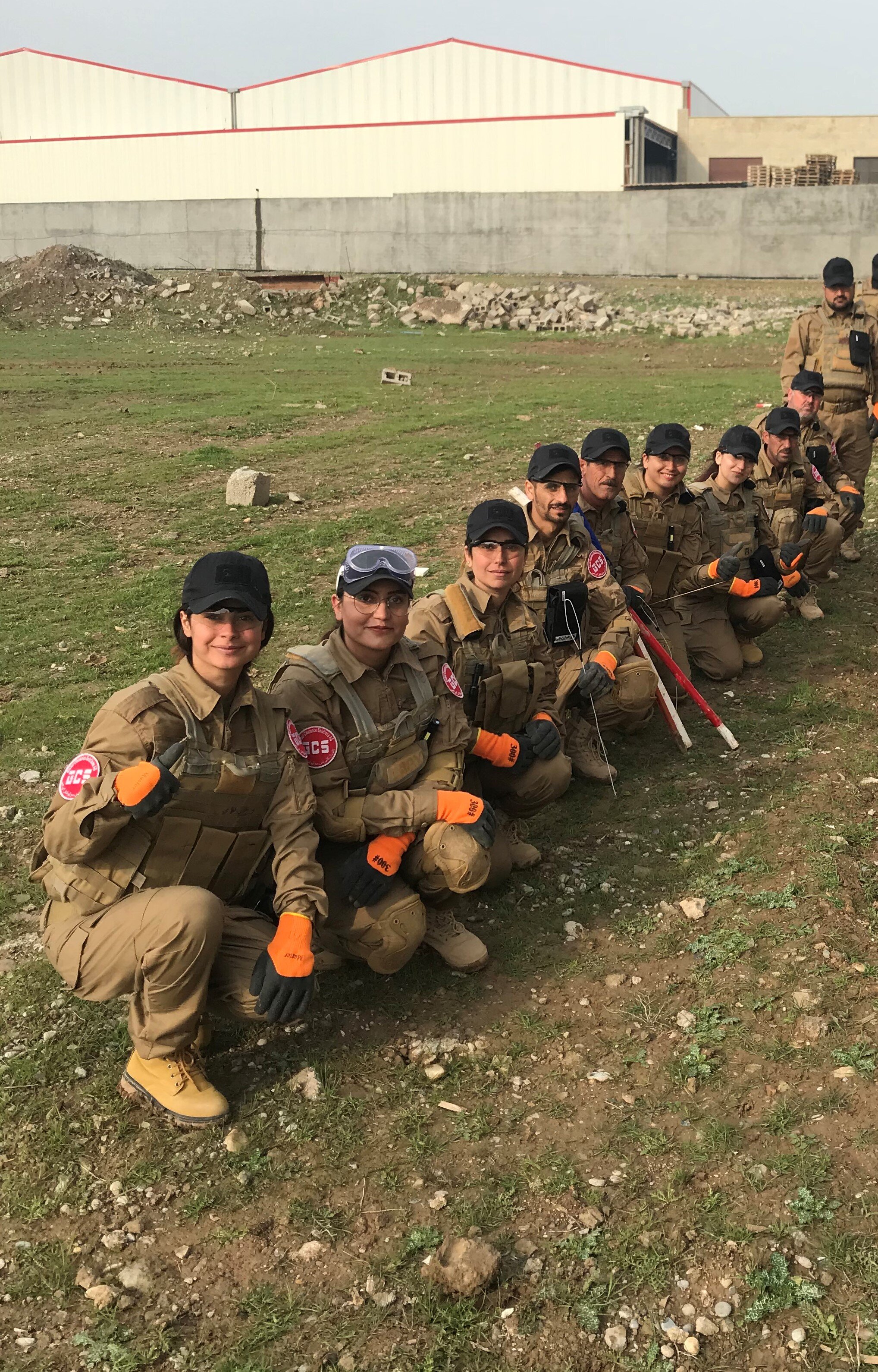Littered with large volumes of explosive ordnance, Iraq ranks as one of the most extensively contaminated countries worldwide. The Islamic State of Iraq and the Levant (ISIL) occupation of 2014-2017, left in its wake an IED-proliferation of previously unseen magnitude. While long-term stabilisation efforts have resulted in some progress, many areas remain uninhabitable and inaccessible, preventing approximately 1.4 million internally displaced persons from returning to their areas of origin. GCS acknowledges the urgency of addressing explosive ordnance threats to save lives and to enable the provision of humanitarian, stabilisation and development support to the population of Iraq. In 2020 GCS was awarded an UNOPS/UNMAS contract to conduct high-risk IED (improvised explosive device) clearance operations in Iraq.
HIGH-RISK OPERATIONS
Clearance operations are conducted in regions of Tal Afar, which are considered ‘high-risk’ due to the presence of a full-spectrum threat of IEDs. During ISIL’s retreat in these areas, booby traps and minefield-style obstacle belts were laid in staggering numbers in public and private infrastructure including houses, schools, hospitals and playgrounds. Unexploded IEDs lie hidden under rubble, littering roads and farmland, preventing any attempt at re-establishing vital infrastructure to cities.
As part of the project, GCS clearance experts are tasked with highly complex and challenging undertakings involving the search, identification, neutralisation and removal of these explosive ordnance. In addition to search and clearance tasks, GCS recruits and trains local staff to deliver emergency Risk Education (RE) to people returning to, or residing in, contaminated areas. The mobilisation phase of the project was completed in the Spring of 2020. As a result, GCS successfully passed the UNMAS Iraq operational review.
LOCAL CAPACITY BUILDING
Although national staff have been the cornerstone of high-risk search teams in Iraq, to-date explosive ordnance management projects traditionally placed a reliance on international teams to manage most operational activities, such as specialist IEDD and EOD capacities. This project seeks to turn that around by fully transitioning the clearance capability to local national clearance teams. Two GCS international experts are providing guidance, advice and mentoring to an entirely national team, and are responsible for managing all elements of their operational activity as well as a program of continuing professional development.
As the operational phase progresses, it is expected that the teams will become increasingly independent, so that by the end of the contract an effective self-sustaining and self-supervising local national capability is produced. GCS is dedicated to the full transitioning of IED clearance activities to national entities as a crucial key step in restabilising and rebuilding Iraq.
GENDER EQUALITY
One very crucial element of the project is that GCS incorporates provisions toward gender equality and the empowerment of women in all aspects of recruitment, retention, and training. Senior management is required to integrate outreach towards population groups who are socially discriminated against, and to encourage staff to include a gender and diversity-focused objective within all action plans. GCS has recruited and is training many young women in a variety of roles including Searchers, Risk Education Officers and project management staff. GCS has focused on recruiting and training young men and women, since youth unemployment is one of the greatest challenges facing Iraq.
THE ROAD AHEAD
Iraq’s national authority, the DMA, aims to render safe 50 percent of known contamination by 2021. “Until all types of explosive ordnance are cleared, and areas made safe, displaced Iraqis cannot safely return home. This project is a crucial step in rebuilding Iraq. GCS is greatly committed to supporting the goal of explosive threat mitigation by delivering this critical work,” explains GCS CEO Philipp von Michaelis




